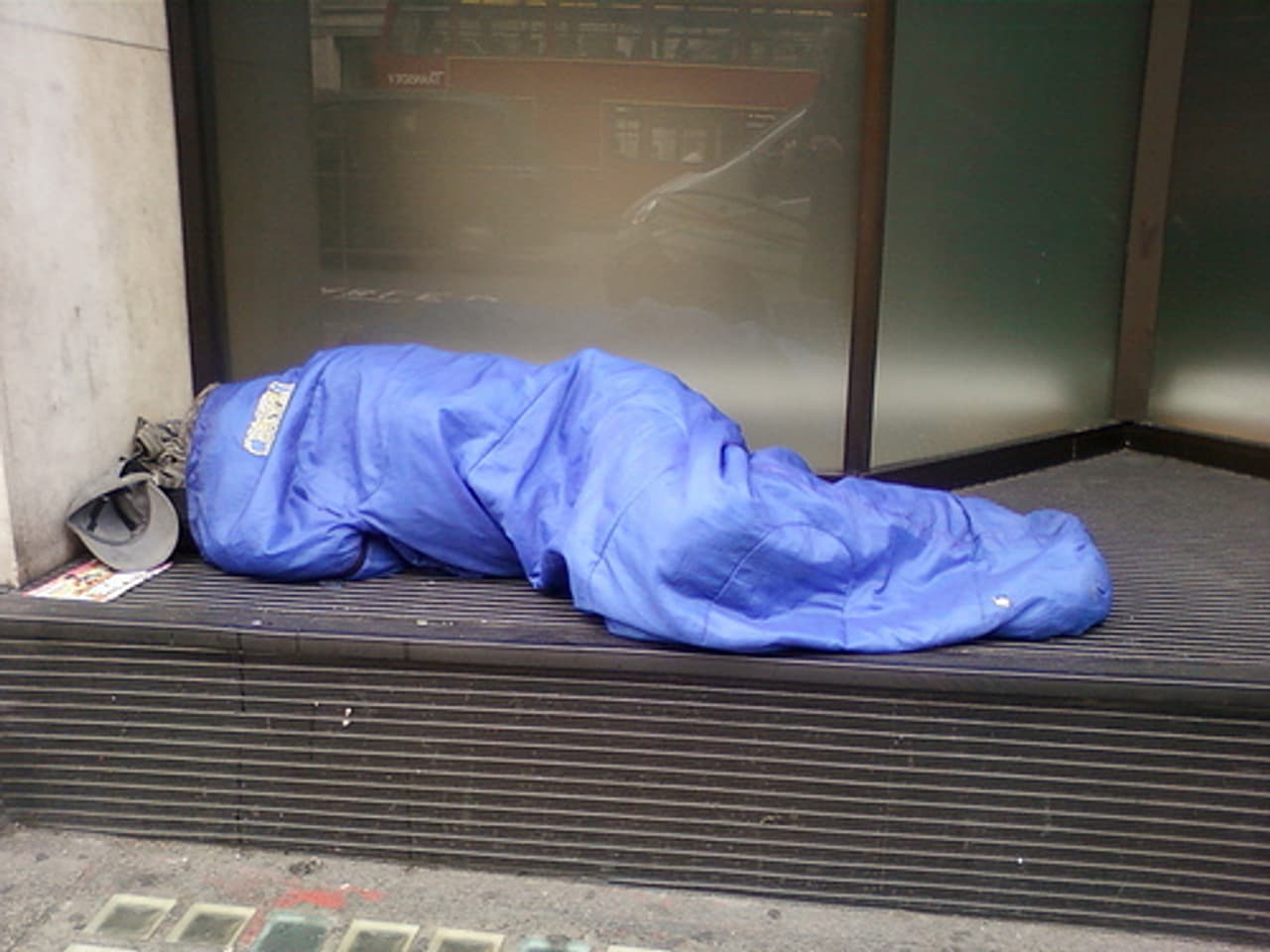
Westminster buys houses outside London to cope with steep rise in homeless
Sleeping rough in Westminster. One of the rising number of homeless. (Image via Flickr)
What has been described as the ‘chaos’ besetting Westminster council’s homeless strategy was laid bare last night as councillors in the central London borough agreed to buy or lease 600 extra properties, most of which will be outside its borders.
The ’emergency measures’ have been taken in an attempt to cope with an 86% increase over the past two years in families classed as homeless.
The revelation comes just two weeks after the Bureau revealed Westminster spends more on short-term accommodation than any other council. It has projected that it will spend £41.8m on temporary accommodation – a 63.5% increase this financial year. The figure, said the council, is more than it is saving on welfare reforms.
Related story: Westminster hit by soaring costs as it struggles with homeless crisis
And last night the local authority stated that it was unlikely to keep to this budget. Just two months into the financial year and the cost of rehousing vulnerable families in hotels and bed and breakfasts is spiralling. The council said it was likely to go at least £6m over budget by March 2014 as a result of housing its growing homeless.
Westminster admitted its failure to procure sufficient temporary accommodation to meet the pace of growing demand has meant the council has been unable to meet a statutory requirement that families are only kept in B&Bs for a maximum of six weeks.
Councillors admitted the borough’s current temporary accommodation strategy which relies on renting homes from private sector landlords on short leases ‘is no longer adequate’ as the sheer weight of numbers means B&B rooms are purchased on the open market as the need presents itself.
It further stated that the costs of its current policy ‘is unsustainable and is resulting in statutory duties towards homeless households in some cases not being met’.
The council resolved to buy or rent on a long term basis 600 new properties some of which will be out of London. Its new policy will ensure new homes will require no more than 85 minutes travelling time.
Westminster’s decision will increase dramatically the number of households moved outside its border. The Bureau’s investigation into housing showed that in the past four years London councils rehoused 32,643 households outside their borders. Westminster figures only date back two years, but within this time period it has moved 391 households out of its area.
The council admitted ‘the combined effect of rising homeless, local housing allowance caps, household benefit caps and the new temporary accommodation funding model’ requires ‘a new approach’.
Related story: Scale of UK housing crisis revealed
Local housing allowance restrictions to housing benefits which came into force in 2011 have hit Westminster households hard as rents are significantly higher in central London. But the council has come under attack from opposition Labour councillors for failing to build enough affordable homes.
Currently Westminster said it is building 500 affordable units. Over a third of its 22,000 council housing stock has been sold off since right to buy was accelerated during the 1980s. Controversially, many of its sold off stock is now in the ownership of buy-to-let investors.
‘Westminster’s policy is in complete and total predictable chaos,’ said Westminster North Labour MP Karen Buck. ‘Anyone pointing out what the impact would be of these policies have been labelled scare mongers for exaggerating but the impact is worse than our deepest fears. Taxpayers are going to be stung by this. I do have sympathy for Westminster’s position but they have been cheerleaders of these welfare reforms which are costing a lot of money and causing a lot of pain.’
Jonanthan Glanz, Westminster cabinet member for housing and property, rejected Buck’s assertion that his council’s housing strategy is in chaos. Glanz instead blamed previous Labour government policies that entitled those in housing need to live in expensive districts such as Sloane Square, Mayfair and Belgravia. Glanz claimed Westminster has records to suggest it has accepted as homeless and rehoused 5,000 households in expensive properties as a result.
This, he suggested, has pushed up housing benefit costs to unaffordable levels requiring the coalition government to limit rent contributions made through housing benefit. Glanz said it was unfair to expect benefit claimants to live in high rent districts.
When asked whether rehousing homeless households to outer London boroughs or even towns and cities further afield was creating strain on public services elsewhere, he said: ‘We all have challenges and we have to do what is compliant under the law. We can’t use our council taxpayers’ money to subsidise this situation.’




